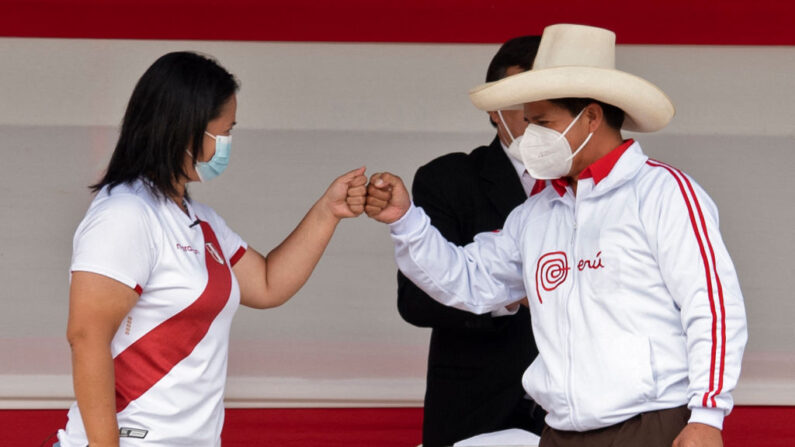RIO DE JANEIRO, BRAZIL – The National Jury of Elections (JNE) of Peru confirmed that it will only proclaim the results of the second round of the presidential election held on June 6 when it has resolved all the observed tally recounts and the petitions for annulment presented in court.

This Tuesday, the National Office of Electoral Processes (ONPE) advised that leftist candidate Pedro Castillo won with 50.125 % of the votes against rightist Keiko Fujimori, who obtained 49.875 %, after 100% of the vote had been counted in the presidential second round.
With the total number of votes counted, Castillo obtained 8,835,579 votes, 44,058 more than Fujimori, who received 8,791,521 voters.
Despite the finalization of the count, the winner still cannot be proclaimed because the pro-Fujimori party Fuerza Popular has requested the annulment of hundreds of voting records for alleged irregularities that it considers part of a “table fraud”.
Read also: Check out our extensive coverage on Peru
These petitions are being reviewed by the decentralized offices of the JNE, which so far have dismissed most of the complaints for having been submitted after the deadline or lacking substantive support.
So far, not a single one of the requests made by Fujimori has been accepted due to formal defects or lack of grounds.
The plenary of the highest electoral court remarked that since last Monday, it has been holding hearings and public sessions in which it listens to the arguments of the parties, and then broadcasts its deliberation sessions live and votes on the appeals “to provide maximum transparency on its decisions before the citizens.”
The resolutions on the appeals are sent to the Special Electoral Juries (JEE) of each jurisdiction so that these, in turn, send them to the corresponding Decentralized Offices of Electoral Processes (ODPE) so that, if applicable, they can be included in the computation of results.
Subsequently, when the JEEs do not have any pending appeals to resolve, they will proclaim the results within the scope of their competence.
Finally, the plenary of the JNE will subscribe to the act of general proclamation of results. It will deliver the credentials to the candidate who will assume the Peruvian presidency for 2021-2026, following the Constitution and the Organic Law of Elections.
“In this way, the JNE as an autonomous constitutional body proceeds with respect to the electoral regulations in force and the due process, in such a way that the results of the elections are a true reflection of the will of the citizens expressed at the ballot box,” the entity concluded.

